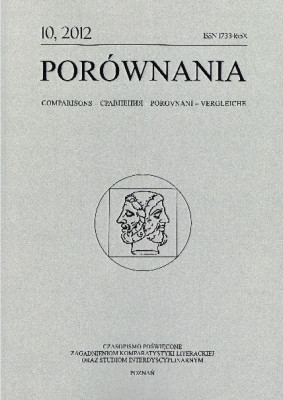Czesław Miłosz’s Double Perspective on The East and West. His Outlook on Russia and Germany
This article presents an attempt to compare Cz. Miłosz’s view of Russia and Germany as two complementary aspects of his vision of Europe. This comparision starts with the author´s remarks on the neighbouring languages – Russianin the East and German in the West. It is continued by the poet´s own experience gained by travelling in both countries, in Czarist Russia as well as in Interwar Germany. The particular ideologies connected with both neighbours are critised by the author. These ideologies are fascism in the West and Communism in the East. Of great importance for Miłosz’s view of both countries are Russian and German literatures. Dostojewski is for Miłosz the most outstanding Russian writer. He is regarded as a thinker and therefore becomes a certain counterpart of the German philosopher Hegel. In this context Goethe, as well as Swedenborg or Mickiewicz, is understood as an antagonist to Newton’s philosophy. It is of interest that inthis framework of philosophy and literature Miłosz does not take into account the German philosopher Heidegger, who in his thinking is very close to Miłosz’s writing
| Article Title | Type | Size |
|---|---|---|
| Alois Woldan Podwojne spojrzenie Milosza na Wschod i Zachod | [pdf] | [904 KB] |
